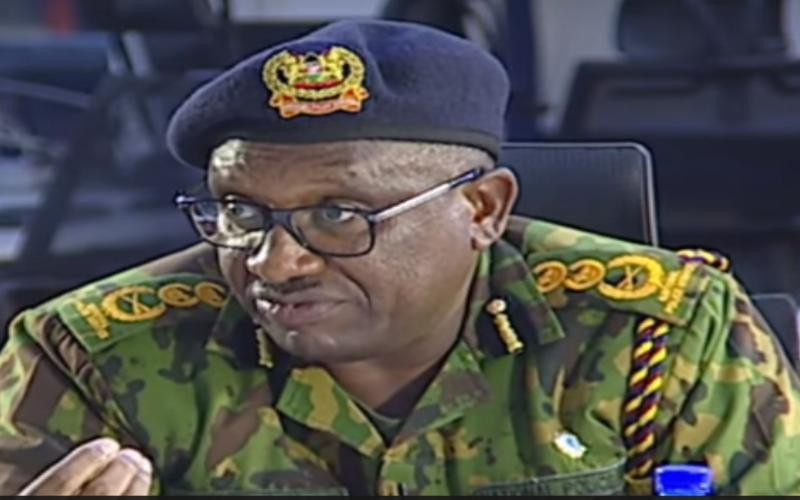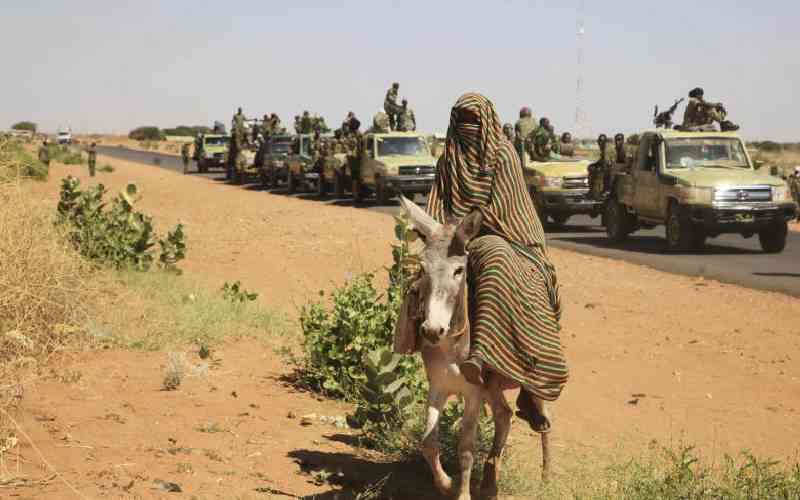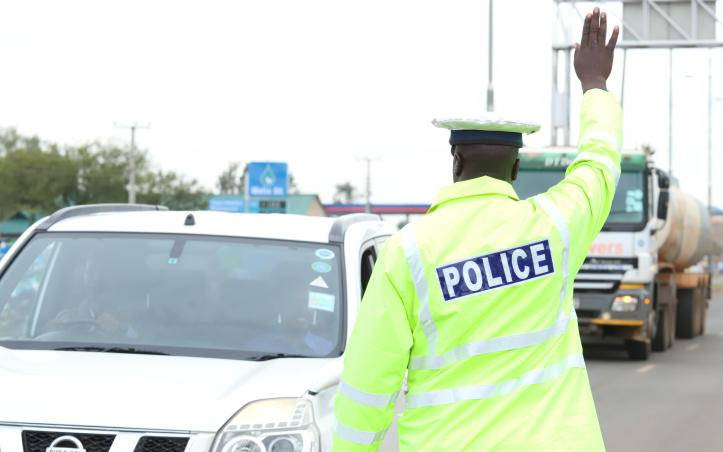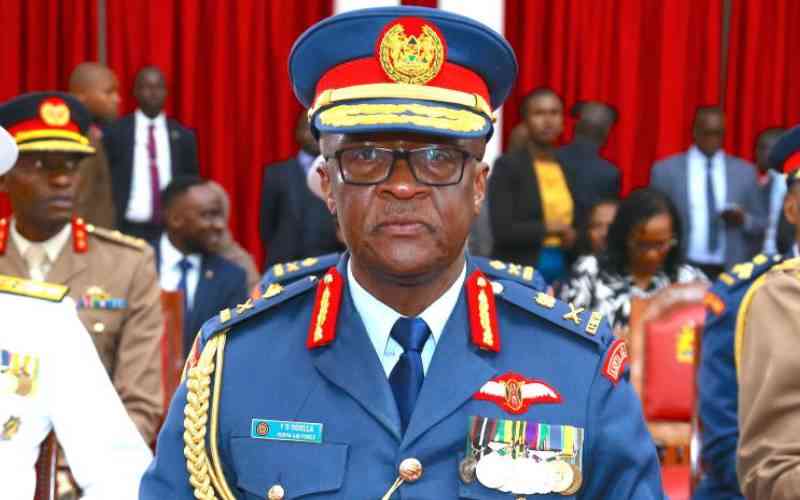By PAUL GITAU
The Government blocked access to two mass graves at the scene of recent violence in Tana River County.
Security teams unearthed what they claimed appeared to be bodies packed into two graves, but because they barred journalists from entering the remote area, it was not possible, by the time of going to press, to determine how many bodies were found.
The Kenya Red Cross Society are treating the find with secrecy. It confirmed that it had received reports of the alleged mass graves at Ozi, but was unable to reach the village due to a police lockdown.
Caleb Kilande, the Kenya Red Cross relief officer in charge of the county, said security teams combing the region for weapons and militiamen closed all roads into the village.
“We are trying to enter the village. At the moment we are in Kipini. We want to see if we could access the area by speed boat,” he told The Standard.
However, the discovery is already stocking suspicion of earlier killings prior to the ones first reported three weeks ago in skirmishes that occurred when the Government was in deep slumber as rival communities massacred each other.
By the time the Government attempted to restore calm, over 100 people had been slaughtered according to official figures.
The two suspected mass graves would therefore open up another can of worms by revealing that more bodies could have been buried secretly.
Close scrutiny
And in a new twist of events, sources told The Standard that the police had confiscated 10 cell phones from suspects in the area, which had revealed shocking details.
The sources said upon scrutiny of the SIM cards and the M-pesa communication, it was found that the suspects had been communicating and even receiving funds from suspected operatives of the Mombasa Republican Council (MRC) and other personalities from outside the area.
Police in Coast Province have already gone to court seeking orders to exhume the two suspected mass graves found in the violence-torn Ozi village on Monday.
And in Garsen, 20 people including two chiefs arrested in the same village on Monday, were charged with murder related to the August 22 and September 7 and 11 killings in Chamwanamuma, Riketa, and Kilelengwani villages.
There are mounting questions over whose bodies are in the shallow graves said to be near the dense Ozi forest, given that police denied aid workers and reporters access to the area.
Stay informed. Subscribe to our newsletter
The area is said to be insecure and remote and access by road is difficult.
Last evening security officers, who tried to approach the area, were marooned after unknown men hiding in the forested area encircled them and they had to be rescued by helicopter.
Earlier, some police sources had alleged that graves were, in fact, ammunition dumps or hidden weapons police stumbled upon on Monday.
“We are seeking court orders to exhume the graves,” Tana River County Commissioner, Joseph Rotich, told The Standard in Garsen Tuesday. He earlier disclosed the alleged graves were discovered on Monday after General Service Unit and other security forces raided the village in search of militiamen and weapons.
During the raid, the forces detained 20 men, including chiefs, but locals accused them of targeting civilians and torching houses, shops and food stores. Police denied the claims.
The Standard learnt that during the security operation leading to the arrests, police recovered two binoculars, 32 machetes, 17 spears, six axes, police uniforms, sleeping bags, and two thunder flashes from thickets.
Reports indicate a local person believed to have prepared jungle-green police uniforms for the raiders behind recent killings in Kilelengwani has fled the area, and is hiding in Kisauni.
But according to reliable sources within the police in Tana Delta, the two graves are 40m apart on the edge of a forest in Ozi, with police claiming they contain the bodies of slain militiamen from the September 11 massacre at Kilelengwani in which nine police officers were also slain alongside 29 men, women, and children.
Last evening Coast Provincial Police officer Aggrey Adoli insisted that police had stumbled on mass graves.
Adoli was more guarded in the evening as doubts mounted over police accounts of the alleged discovery.
“Our people went there and found sites looking like mass graves,” he said last evening, when questioned why police authoritatively claimed to have stumble upon graves with human remains.
Underneath soil
“What we are trying to get is a court order to exhume,” he said, after acknowledging that it could be premature to say what lies underneath the soil at the sites.
“Let us not speculate because we do not know what is in that place,” Adoli said after disputing reports that armed assailants had chased away police from the sites.
The PPO said police are still guarding the sites to preserve evidence.
But earlier the PPO had suggested that sites contained remains of militiamen police claim were killed on Monday last week, when the nine police officers were slain at Kilelengwani.
Early Tuesday Adoli was quoted saying: “We believe the victims were shot dead by police before they overpowered the officers in the Kilelengwani attack that left 38 people dead. The assailants later carried the bodies and buried them in shallow graves,” he said on the phone. He was advancing a disputed hypothesis analysts believe was invented after the Kilelengwani massacre to explain why the officers were killed without firing a shot.
Senior policemen now claim 300 attackers raided Kilelengwani and killed policemen and villagers then carted away their fallen colleagues, a claim unsupported by survivors of the massacre.
Meanwhile, 20 people, among them the two assistant chiefs, were Tuesday arraigned in a Garsen court for alleged involvement in the Tana Delta massacres that has led to the killing of 120 people.
The chiefs brought to trial are Salem Hiribae of Mpeketoni and Ali Komora of the ill-fated Ozi village in Tana Delta District.
The suspects appeared before the Garsen Senior Resident Magistrate Justus Kituku, but could not plead to the charges?after the investigating officer Erastus Njonjo applied to detain them for five days for police to complete murder investigations against them.
Njonjo told the court that some witnesses had been displaced by the clashes, while some areas remained unsafe and out of reach because of tension.
Njonjo said he needed time to look for the witnesses who had fled the area and also others who are in hospitals.
He also informed the court that the prosecution is planning to subject the suspects to psychiatric evaluation to establish their suitability for trial.
“It is due to the above technicalities that investigations could not be completed within a period of 24 hours, which the suspects ought to have been taken to court,” Corporal Njonjo said.
The suspects are Said Nkoka, Ali Omar Mgawa, Ade Amani Ali, Said Bakari Abio, Wachu Badiwa, Jillo Omar Shoeh, Ali Komora, Hiribae Mohamed Omar, Bahola Mashaka, Ali said and Maembe Mohamed.
Others were Ali Bahazi, Salim Ali Hiribae, Abdalla Jumaa, Ali Jaro Madubi, Ali Omar Daku, Mohamed Ali, Abdalla Bashora, Abdalla Ali and Omar Daku.
The suspects were remanded for another five days when the case will be mentioned.
 The Standard Group Plc is a
multi-media organization with investments in media platforms spanning newspaper
print operations, television, radio broadcasting, digital and online services. The
Standard Group is recognized as a leading multi-media house in Kenya with a key
influence in matters of national and international interest.
The Standard Group Plc is a
multi-media organization with investments in media platforms spanning newspaper
print operations, television, radio broadcasting, digital and online services. The
Standard Group is recognized as a leading multi-media house in Kenya with a key
influence in matters of national and international interest.
 The Standard Group Plc is a
multi-media organization with investments in media platforms spanning newspaper
print operations, television, radio broadcasting, digital and online services. The
Standard Group is recognized as a leading multi-media house in Kenya with a key
influence in matters of national and international interest.
The Standard Group Plc is a
multi-media organization with investments in media platforms spanning newspaper
print operations, television, radio broadcasting, digital and online services. The
Standard Group is recognized as a leading multi-media house in Kenya with a key
influence in matters of national and international interest.








